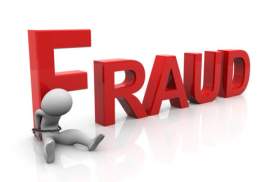
Oklahoma Expungement Laws

Expunged records in Oklahoma are removed from public record. Anyone who searches Oklahoma court records will not find a person's name on an Oklahoma court record if it has been expunged. The expungement process serves as a form of privacy protection for those worthy of an expungement. If their name is removed from public record, possible employers will not be able to link a name with a criminal record. Someone with an expunged record can legally deny any involvement in the criminal record that has been removed from public record.
The sealed records are not completely obliterated by every agency containing them. Sealed records may be used in future criminal cases against the same person or used as character evidence in criminal or civil trials. Law enforcement agencies or prosecutors may request to view certain expunged records. The expunged records will forever remain in the Oklahoma court records.
Part of the reason the expunged records will remain in the Oklahoma court records is for statistical purposes. Some records may exist in full with the exception of the defendant’s name. If there were fines paid as a result of a trial, the person and amount paid may be kept on public record. Details of the case including any identifiable information such as DNA and physical measurements cannot be included in the public record.
Expungement Eligibility
Those who plead guilty or no contest to a crime may be eligible for an expungement if they have successfully completed a deferred sentence. Those who committed a felony may not receive an expungement unless the court waives its own rule. Those convicted of a sex crime cannot have their record removed from public record and must register as a sex offender. The person requesting an expungement must not have any felony deferred judgements within the last ten years.
The defendant must satisfy one of the following criteria to be eligible to seal their public record:
1. Defendant was acquitted.
2. The conviction was reversed or charges were dismissed.
3. The person was proven not guilty with the use of DNA.
4. The governor handed out a full pardon to the defendant.
5. There were no charges filed against a defendant within one year.
6. The statute of limitations for the crime has expired and no charges were filed.
7. The person was under 18 years old when the crime was committed and a pardon was received by the governor.
8. The offense was a misdemeanor and no other charges have been made within ten years according to Oklahoma court records.
9. The offense committed was not violent according to Oklahoma court records and ten years have passed since the incident.
10. The charges against a person were brought on due to identity theft of the defendant.
Juveniles that are now over 21 years old and have not been charged with any adult crimes are eligible for the sealing of their public record. First time drug offenders who complete the deferred judgment program may be eligible for the expungement of their Oklahoma court records.
Expunging a Record
After filing a petition for expungement, the court will set a date for a hearing within thirty days. All agencies involved with the case including those who have documents regarding the record will be notified. The court will determine if the unsealed public record offers unfair harm to that person's life. The expungement must be filed in the same district court where the criminal trial was held.
The petition for expungement should include all information about the arrest. This includes where and why the arrest took place, who was involved, and dates and details regarding all charges filed. Copies of all the necessary information must be sent to the court, the arresting agency and the Oklahoma State Bureau of Investigation. These agencies, as well as any others that are in possession of information regarding the arrest and charges, must be notified 30-45 days in advance of the Oklahoma expungement hearing. This gives those agencies proper time to assess and prepare an argument against the expungement.
A decision regarding the expungement of public records will be made at the hearing. If an argument against the expungement is presented and the expungement is not granted, the person has the right to appeal the decision. Also, agencies have the right to appeal the decision if an expungement is granted. If you need legal advice and assistance, contact Oklahoma lawyers.
NEXT: Oregon Expungement Laws





















